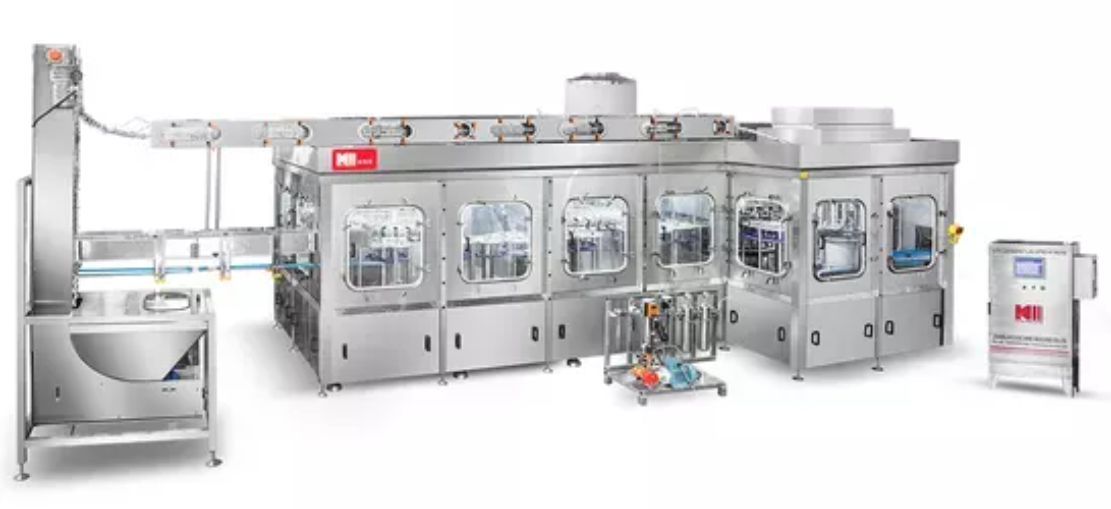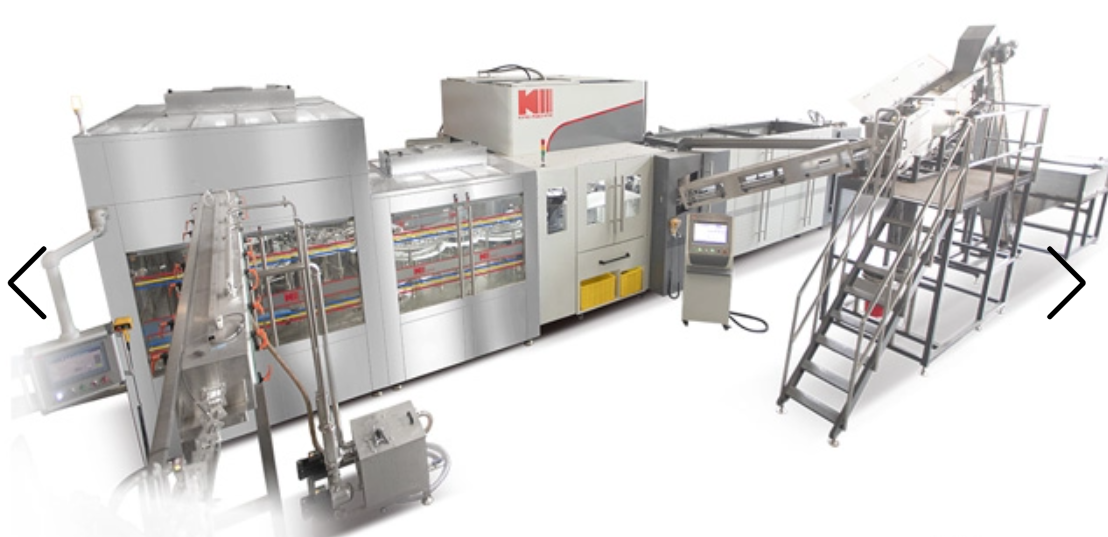Views: 0 Author: Site Editor Publish Time: 2025-05-30 Origin: Site










Choosing the right can filling machine is crucial for maintaining consistent product quality and streamlining your production process. With so many options available, it's easy to feel overwhelmed. In this post, we'll discuss how to choose the perfect machine for your specific needs, ensuring both efficiency and growth in your business.
When choosing a can filling machine, understanding your product is key. Factors like viscosity, carbonation, foamability, and temperature sensitivity can significantly impact your filling process.
● Viscosity: Thicker liquids, such as syrups or sauces, need machines that can handle their dense nature. On the other hand, lighter liquids flow easily and require less specialized equipment.
● Carbonation: For carbonated beverages, the filling machine must maintain pressure to avoid losing carbonation. Machines equipped to handle carbonation are crucial to ensure quality and consistency.
● Foamability: Products like sodas or beer produce foam during filling. Machines designed to minimize foam overflow ensure smooth and accurate filling.
● Temperature Sensitivity: If your product is sensitive to temperature, you need machines with advanced temperature control features to prevent spoilage or quality loss.
By understanding these characteristics, you can select the machine that works best for your product, ensuring smooth operations and minimizing waste.
Your production scale plays a big role in the type of filling machine you should choose.
● Small-Scale Operations: If you're working with limited production, manual or semi-automatic machines might be sufficient. These machines are cost-effective and ideal for small batches, offering simplicity and ease of use. They're also a great option for businesses testing new products.
● Large-Scale Operations: High-volume production requires fully automatic machines. These machines work at high speeds, filling hundreds or thousands of cans per hour. They also reduce the need for manual labor, improving efficiency and consistency.

Businesses often face seasonal spikes in production. Your machine should be flexible enough to handle fluctuating demands.
● Seasonal Fluctuations: During peak seasons, such as holidays or special promotions, you may need to scale up production. Machines with adjustable settings can help manage these fluctuations, ensuring you meet demand without compromising quality.
● Future Scalability: As your business grows, so will your production needs. Choosing a machine that allows for future upgrades or scalability can save costs in the long run. Opting for a machine that can handle larger volumes without a full overhaul makes it easier to expand operations over time.
By considering both current and future production needs, you can make an informed decision about the best filling machine for your business.
Manual filling machines are the simplest type of equipment. They are ideal for small businesses or startups looking for a low-cost option.
● Pros:
○ Affordable, low initial investment.
○ Easy to operate and maintain.
○ Great for craft products and small batches.
● Cons:
○ Labor-intensive, requiring more hands-on work.
○ Slower filling speed, not suitable for large-scale operations.
○ Limited scalability as production needs grow.
These machines are perfect for businesses that produce small volumes of unique products, such as specialty craft beverages or artisan goods.
Semi-automatic machines strike a balance between cost and efficiency. These machines combine manual input with automated functions, making them more productive than manual machines.
● How They Offer Balance:
○ Ideal for businesses that need moderate production capacity.
○ They reduce labor costs while still requiring some human oversight.
● Benefits:
○ Suitable for moderate production volumes.
○ More efficient than manual machines, increasing productivity without a huge investment.
○ Flexible, handling a variety of product types.
If you're looking to boost productivity without a massive investment, semi-automatic machines offer a good middle ground.
Automatic filling machines are designed for high-speed, large-scale production. They handle high-volume operations effortlessly, filling hundreds or thousands of cans per hour.
● Advanced Features:
○ Precision Valves: Ensures accurate filling, reducing waste and ensuring consistency.
○ Automated Can Positioning: Automatically positions cans for faster, more precise filling.
● How They Handle High-Volume Demands:
○ Fully automated, meaning they require minimal human intervention.
○ Ideal for businesses that need to meet large-scale production demands consistently.
For high-demand, fast-paced environments, automatic filling machines provide the speed and precision necessary to keep up with the pace.
Some products require machines specifically designed to handle unique challenges. Specialized filling machines cater to these needs, ensuring product quality.
● Product Types:
○ Carbonated Beverages: These machines handle the pressure required to maintain carbonation without loss.
○ Viscous Liquids: Machines designed for thicker liquids, such as syrups or sauces, ensure smooth and consistent filling.
● Benefits:
○ Tailored to handle the unique characteristics of specific products.
○ Ensures that products like carbonated drinks or viscous sauces maintain their quality and integrity.
Specialized filling machines are crucial for businesses that produce products with distinct characteristics, ensuring optimal quality during the filling process.
Precision in filling is critical for maintaining the quality of your product. Inaccurate filling can lead to wasted product and customer dissatisfaction.
● Why Precision Matters:
○ Ensures each can contains the right amount of product.
○ Reduces waste, helping to save money and resources.
○ Meets customer expectations by delivering consistent quality every time.
● Technology Behind High-Accuracy Machines:
○ Inductive Flow Meters: Measure the exact flow rate of liquid, ensuring consistency and reducing errors during the filling process.
○ Pneumatic Filling Valves: Use air pressure to control the flow of liquid, providing precise filling even for products with varying viscosities.
By using machines with these technologies, you can guarantee high accuracy and product consistency, which are essential for maintaining quality control.
Machine speed directly influences your production timelines. The faster your filling process, the more cans you can fill, but it must be balanced with the need for quality.
● How Speed Affects Efficiency:
○ Higher Speed: Faster machines allow you to meet large-scale production goals and keep up with high demand.
○ Lower Speed: Slower machines may be adequate for small batches or testing new products, but they could create bottlenecks in high-volume operations.
● Adjusting Machine Speed:
○ Consider the pace of your production demands. Machines with adjustable speed settings can adapt to fluctuations in production volumes or seasonal changes.
○ As your business grows, you'll need a machine that can scale up its speed to accommodate increased output without sacrificing filling precision.
Selecting the right machine speed for your business ensures efficiency while maintaining product quality.

When choosing a filling machine, it’s essential to strike a balance between initial costs and long-term operational efficiency.
● Evaluating Total Cost of Ownership:Upfront Price: The initial cost can be tempting, but it’s not the only factor. Cheaper machines may require more maintenance and have higher energy costs in the long run.
○ Maintenance: Consider how often the machine will need repairs or routine servicing. A machine that’s easy and inexpensive to maintain can save you money over time.
○ Energy Consumption: Machines with advanced energy-saving features might cost more upfront but will lower your electricity bills in the long run.
○ Downtime: Less downtime equals more production. Machines with fewer breakdowns or that are easier to repair keep your production line running smoothly.
Investing in a durable, feature-rich machine may feel costly at first but can save money on maintenance and energy over time.
To ensure you get the best value for your money, focus on the essential features that match your production needs.
● Select Essential Features:
○ Focus on features that directly impact your product quality and efficiency, like filling precision or temperature control. Don’t pay for unnecessary add-ons.
○ For example, if you only produce non-carbonated beverages, you don’t need machines designed for carbonation control.
● Financing and Leasing Options:
○ Many manufacturers offer financing options or leasing programs. These help spread the cost of your investment over time, improving cash flow.
○ Leasing programs may also include maintenance and service, helping reduce unexpected costs.
By evaluating your needs and exploring financing, you can choose a machine that provides excellent value both now and in the future.
Choosing the right can filling machine can be overwhelming, but consulting with experts can simplify the process. Industry professionals have the knowledge to guide you toward the best solution for your needs.
● Insights on Machine Capabilities: Professionals can provide detailed information about the latest features and technologies, helping you understand which machine will best suit your product and production goals.
● Upgrades and Future Needs: They can also help identify machines that can be upgraded or adapted as your business grows, ensuring long-term functionality and efficiency.
By talking to experts, you’ll make a more informed choice, reducing the risk of purchasing a machine that doesn’t meet your needs.
Working with manufacturers goes beyond just buying the machine. They offer valuable services that ensure your equipment works seamlessly over time.
● Installation: Manufacturers often provide installation services to ensure your filling machine is set up properly and functions as expected from the start.
● Maintenance: Regular maintenance helps prevent breakdowns and ensures your machine runs efficiently, prolonging its life.
● Troubleshooting: In case issues arise, manufacturers provide troubleshooting support to quickly resolve problems, minimizing downtime and keeping your production line running smoothly.
Good manufacturer support is vital for the ongoing success of your filling operation.
Establishing a long-term relationship with a reliable manufacturer can help your business in many ways.
● Long-Term Support: A trusted manufacturer will offer ongoing assistance, including timely repairs, updates, and advice on optimizing your machine's performance.
● Performance at Optimal Levels: By working closely with the manufacturer, you can ensure your equipment stays in top condition and continues to meet your production needs.
● Examples of Companies Known for Excellent Customer Support:
○ Companies like King Machine and Filamatic are known for their outstanding customer service and reliable machines.
○ These manufacturers offer comprehensive support, ensuring that you get the most out of your investment.
Building a relationship with a trusted manufacturer provides peace of mind, knowing you'll have reliable support whenever needed.
When choosing the right can filling machine, consider product needs, production scale, accuracy, speed, and cost. Focus on the essential features that align with both short-term and long-term goals. Investing in the right machine improves efficiency, reduces waste, and boosts customer satisfaction. Take time to evaluate all options before making a purchase to ensure the best decision for your business.
A: Manual machines are best for small-scale or low-volume production, where cost-effectiveness is important. For large-scale operations, automatic filling machines are more suitable as they handle high-volume production with minimal human intervention.
A: If your product is highly foamy, you'll need a machine designed for foam control. Machines with specialized nozzles and features that regulate foam are essential for beverages like sodas and beers to avoid overflows.
A: Choose a machine with scalable features. This will allow you to adjust the machine to meet future production demands without needing a full replacement, ensuring long-term cost efficiency.